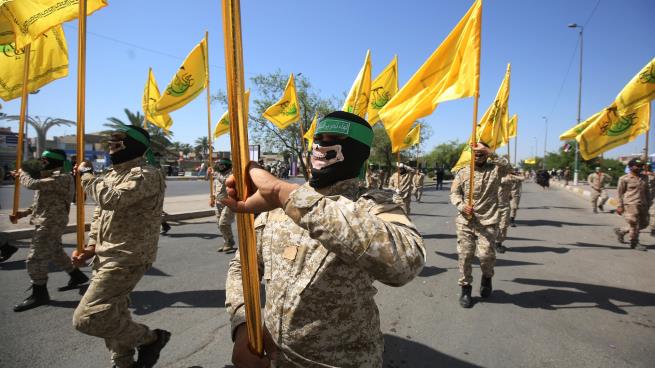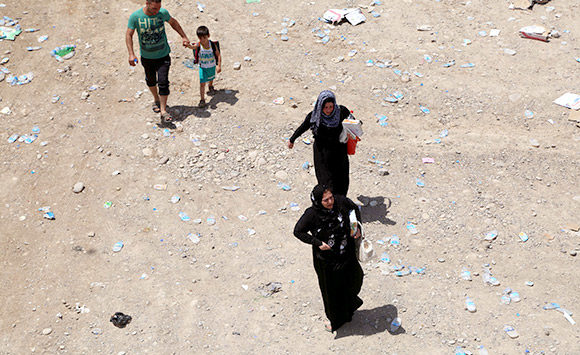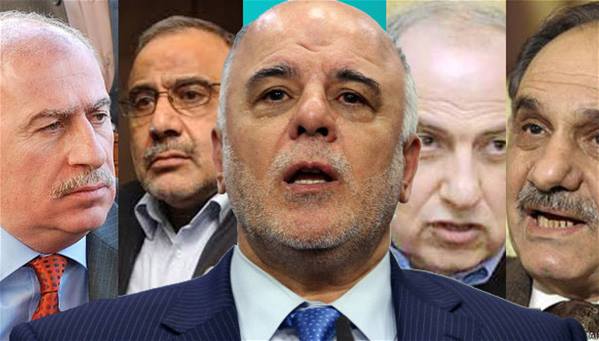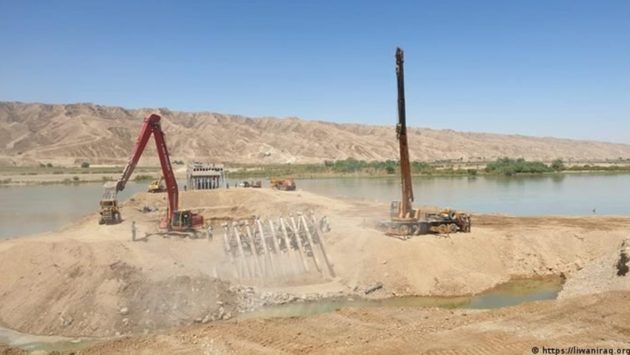Najaf Factions Desist from the “Popular Mobilization” in Iraq
Baghdad – Zaid Salem
April 22, 2020
In the latest development of differences between the armed factions within the Popular Mobilization Units (PMU) in Iraq, the resigned Prime Minister, Adel Abdul Mahdi, decided to disengage the “holy shrines” brigades from religious authorities in Najaf, and link them to the Commander in Chief of the armed forces, administratively and operationally.
A document issued by Abdul-Mahdi, addressed to the head of the PMU, Faleh Al-Fayyad, and reported on by local Iraqi media on Wednesday 22 April, said “We decided to link the 2nd Brigade, 11th Brigade, 26th Brigade and 44th Brigade, administratively and operationally, to the Commander in Chief of the Armed Forces and the rest of the factions will join in a later order.”
According to the document, attaching these brigades to the Office of the Commander in Chief means that they are now following the Iraqi Joint Operations Command, and specifically within the Iraqi Ministry of Defense.
Commenting on the published document, security expert Hisham al-Hashemi said, via Twitter, that “Abdul-Mahdi decided to link the four brigades to him to settle the dispute between the leaders of the holy shrines and the chief of staff of the popular mobilization Abu Fadak, Brigade 2 (Formations of the Imam Ali Combat Division), Brigade 11 (the Husainy holy shrine), Brigade 26 (the Abbasy holy shrine), Brigade 44 (Ansar al-Marjayah).”
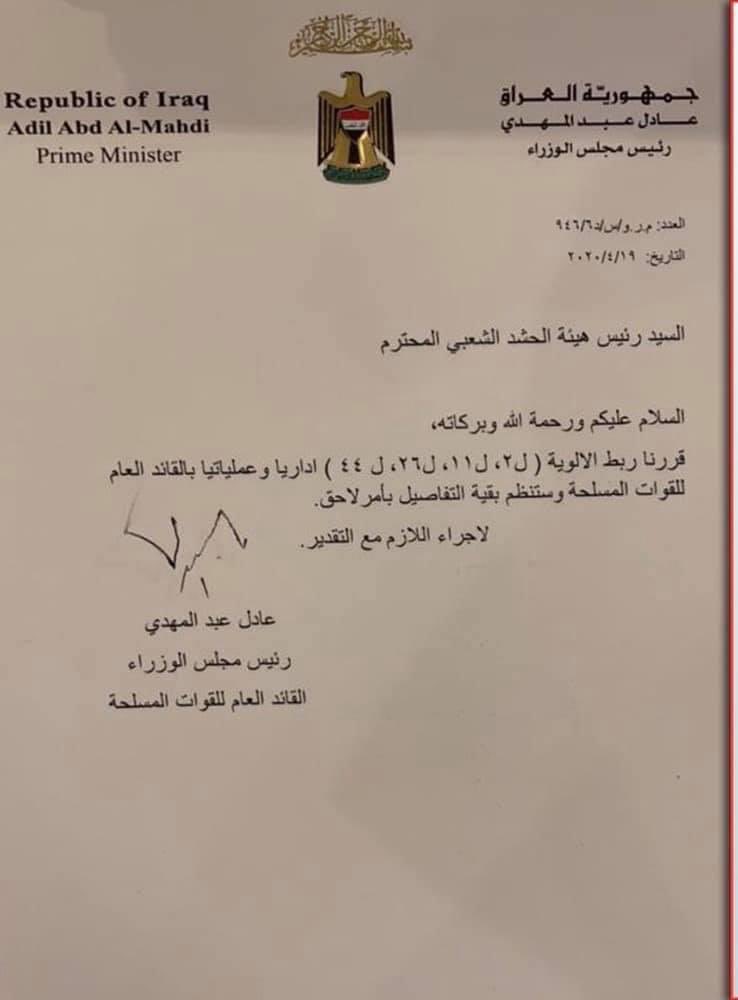
The Iraqi factions associated with Najaf and Karbala, or what is known as the “mobilization of holy shrines,” leads the opposition to appoint Abu Fadak (Abu Aziz al-Muhammadawi), nicknamed “al-Khal,” to succeed Abu Mahdi al-Muhandis, who was assassinated with the Iranian general Qassem Soleimani by an American raid near Baghdad airport early this year.
According to sources close to the PMU, “the decision is deemed an effective departure of the Iraqi factions most present in the security scene in the country from the PMU.” A source in the “Popular Mobilization Authority” told Al-Arabi Al-Jadeed that “differences continue between the state axis and the holy shrines factions,” referring to the militias associated with Iran and those affiliated with Najaf, stressing that “the decision may entail political positions also in the near future between the Shiite political blocs specifically, and even at the religious authority level of Najaf.” Also, “mobilization of holy shrines” is one of the names that have been launched. The factions that are affiliated with these two governorates are located, in a sign of association with the sacred (Shiite) holy shrines in the cities of Najaf and Karbala.
One of the leaders of these factions, Maitham al-Zaidi, the leader of the “Abbas” combat division, which has the greatest contribution in the battles of the Makhmour and Houran axis, in northern Iraq, during the battles liberated from Daesh, accused the leadership of the PMU of distinguishing between the armed factions with regard to financial allocations and other logistical matters.
Iraqi officials and sources familiar with what is happening inside the PMU, which brings together about 70 armed factions in Iraq, confirm that the current differences between these factions are still confined to the ranks of the main leaders and leaders within the forces, but in practice they created two camps inside the PMU. The first includes the Iraqi factions associated with Najaf and Karbala, and the second includes the term “state” in Iraq, which are administratively linked to Baghdad, and ideologically to the Iranian guide, Ali Khamenei.
The differences have been shown and evolved recently, especially after the meeting that brought some of them together with Minister of Defense Najah al-Shammari, and have been made public. But in reality differences have worsened since the killing of Soleimani and al-Muhandis in a US air raid in Baghdad last January.
In 2016, the Iraqi parliament passed what is known as the “Popular Mobilization Law”, which considered the PMU a military institution linked to the Commander in Chief of the Armed Forces and receiving orders from him. But most of the PMU factions did not adhere to government directives, and many violations were committed in the provinces which witnessed battles against “Daesh”, and have demonstrated their allegiance to Iran openly, especially with regard to the implications of its bombing of US military sites in Iraq.

